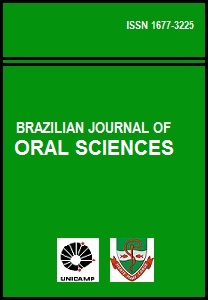Abstract
Aim: The aim of the present study was to retrospectively evaluate the epidemiologic characteristics of the prevalence, type and treatment modalities of maxillofacial trauma according to use of helmets by motorcyclists in traffic accidents. Methods: Data was collected from patients during a 10-year period (1999-2009). Data recorded included demographic, etiology, diagnosis, type of fracture, use of helmet, associated facial and general trauma, soft tissue lesions and treatment methods. Data analysis included a descriptive analysis, Chi-square test and Kruskal-Wallis test. Results: From 376 motorcycle crash victims, 260 had maxillofacial fractures with a male/female ratio of 4:1 and a mean age of 26.1. Considering the helmet as a security device, 89 patients were not wearing a helmet during the crash against 287 patients that were wearing it. One hundred and sixteen patients had soft tissue lesions, 80 of them wore a helmet at the moment of the crash and 36 did not (p<0.05). The most frequently fractured facial bone was the zygoma (24%) followed by the mandible. Conclusions: Motorcycle accidents represented almost one third of all maxillofacial injuries seen at this Oral and Maxillofacial Surgery Division, causing high morbidity. Educational campaigns, defensive driving and use of adequate helmets are necessary to decrease the number of facial injuries in such accidents.The Brazilian Journal of Oral Sciences uses the Creative Commons license (CC), thus preserving the integrity of the articles in an open access environment.
Downloads
Download data is not yet available.

